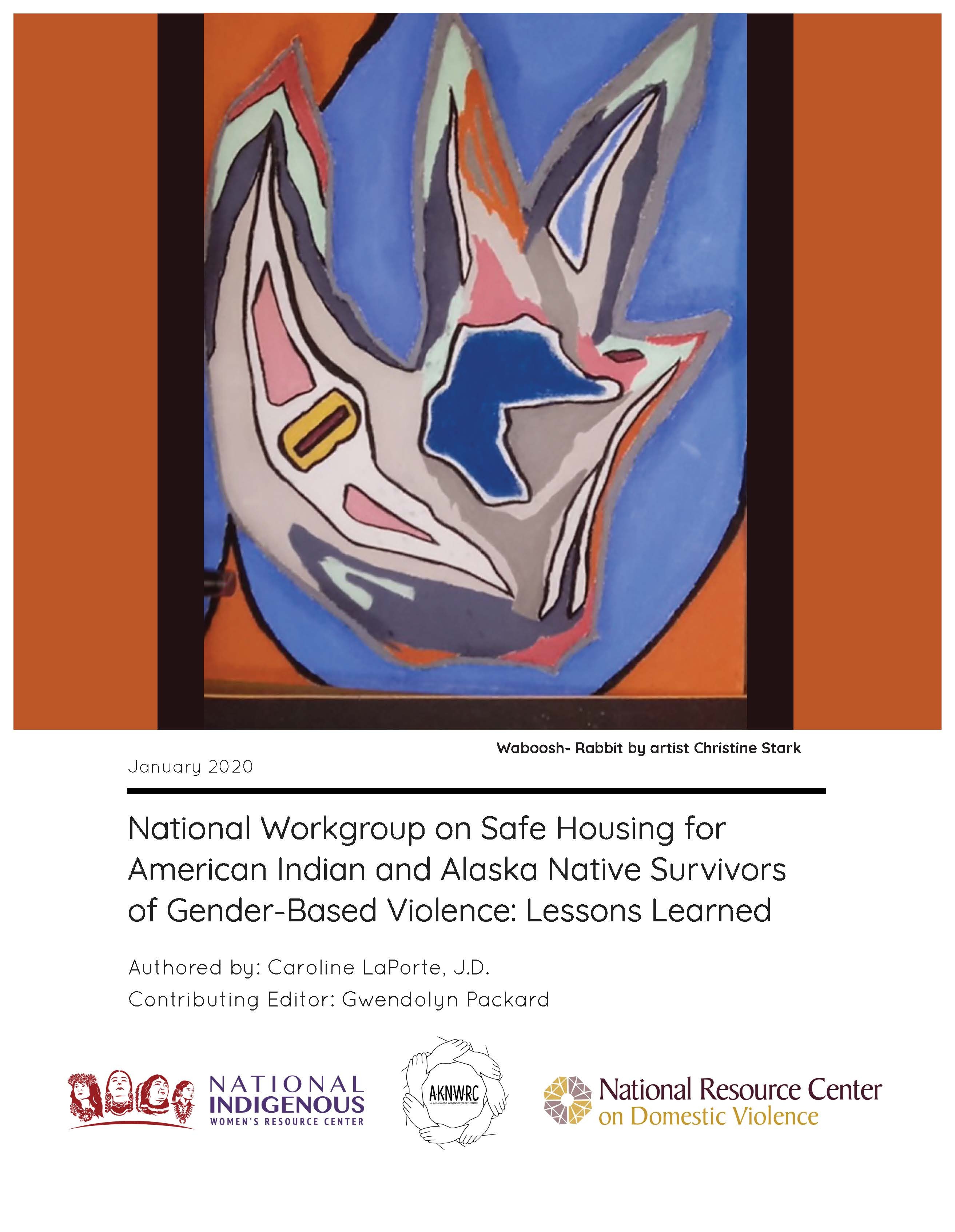Coming Soon: The Tribal Safe Housing Center

Violence meets in Phoenix for the first time in June of 2019. / Photo courtesy of NIWRC.
The National Indigenous Women’s Resource Center Receives FVPSA Funding for the Tribal Safe Housing Center and Introduces New Housing Team
After years of grassroots advocacy to raise awareness and provide support for American Indian, Alaska Native, and Native Hawaiian women impacted by the intersection of gender-based violence and housing instability, the National Indigenous Women’s Resource Center (NIWRC) announces its latest project to establish a Tribal Safe Housing Center (The Center). The Center will work to ensure safety and belonging through Indigenous lifeways and dismantle systemic and endemic barriers that impact housing access for survivors. The Center will accomplish this by elevating culturally-rooted resources, practices, and policies, and centering survivors with lived experience, for real social change. It will also work across the housing spectrum and will prioritize the housing needs of all our relatives, including youth, elders, Natives with disabilities, Two-spirit relatives, and other intersectional identities.
The vision for the Center is “Safe Housing for All Our Relatives.” The Housing team will do this work through centering Indigeneity, acknowledging our relationship to Earth Mother, building on each other’s gifts, resisting oppression and erasure, and acting upon the prayers of our ancestors to honor diversity and create belonging for us all.“We are honored to receive the grant to carry forward the Tribal Safe Housing Center, as it was one of the key recommendations that came out of the National Workgroup on Safe Housing for American Indian and Alaska Native Survivors of Gender-Based Violence,” said Lucy Simpson, Diné, Executive Director, NIWRC.
Caroline LaPorte (immediate Descendant of the Little River Band Of Ottawa Indians) will serve as the Director of the Tribal Safe Housing Center, Gwendolyn Packard (Ihanktonwan Dakota) will serve as the Senior Housing Specialist, and Denise Neal (Suquamish) is joining as the Program Assistant, having previously worked with the National American Indian Housing Council.
“It’s a blessing to have Caroline LaPorte and Gwendolyn Packard to lead this project given their incredible efforts to advocate for Indigenous survivors’ safe housing needs over the years,” Simpson said. “They will share more information about the Tribal Safe Housing Center very soon.”

Find Housing Report in Our Resource Library
National Workgroup on Safe
Housing for American Indian
and Alaska Native Survivors of
Gender-Based Violence: Lessons
Learned: n8ve.net/RpedO
Stay Tuned for Housing Updates from NIWRC
Join our mailing list for the
latest resources, events and
opportunities from our Tribal
Safe Housing Center:
n8ve.net/SvKQv
In the coming year, the Center plans to conduct listening sessions and site visits with Tribal programs. The Housing team will also host webinars, provide technical assistance upon request, and will develop a comprehensive policy strategy and framework to ensure safe, affordable and accessible housing for all.
The Center will continue to host the integral National Workgroup on Safe Housing for American Indians and Alaska Native Survivors of Gender-Based Violence, which was established through key partnerships in 2019 and which published its first report in January 2020. The entirety of the workgroup is credited with creating this opportunity, and in that same vein, the Housing team is excited to continue working with existing partners, such as the Alaska Native Womens’ Resource Center, the National Resource Center on Domestic Violence, and StrongHearts Native Helpline, as well as adding new and valued voices to the existing space.
Because Indigenous people suffer domestic violence and sexual violence at exponentially higher rates than other groups, the need for a safe housing center cannot be ignored. The need for safe housing—further exacerbated by COVID-19 and its variants—makes this Center crucial to protecting our Native relatives and responding to climate crisis impacts to housing that are directly experienced by survivors.1 With 574 federally recognized Tribes in the United States, fewer than 60 Tribally-created or Native-centered domestic violence shelters exist.
A serious priority of the Center is to ensure that the work is built intentionally upon general principles and understandings of root causes and historical origins of the housing crisis across the housing spectrum. The Center believes that housing is a basic human right, one that is not conditional. Though we do this work in some respects by acknowledging the necessity of navigating existing western systems, the Center is committed to work that roots out colonialism, assimilation, and oppression.
1. NY Times, June 2021, Dispossessed, Again: Climate Change Hits
Native Americans Especially Hard. n8ve.net/yiR43.





